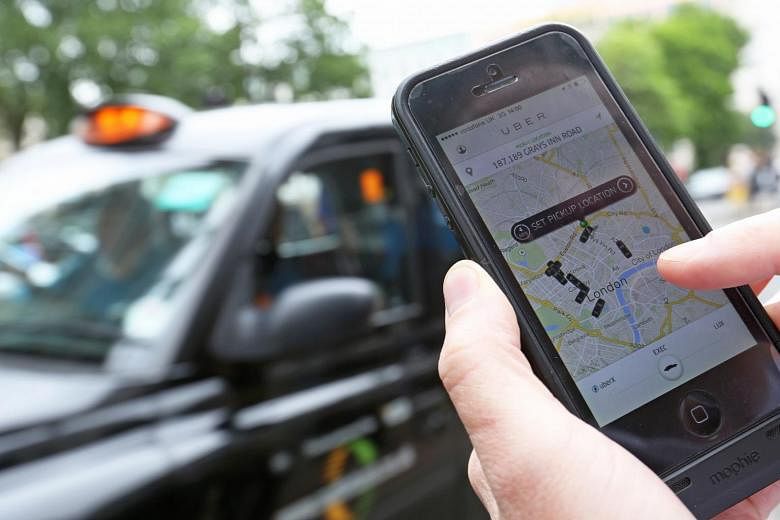HONG KONG (CHINA DAILY / ASIA NEWS NETWORK) - Regulators and law enforcement officers in Hong Kong are coming under growing pressure to address the legal status of car hire mobile applications as China's leading limousine app Kuaidi One is poised to make inroads in Hong Kong.
Kuaidi is already Hong Kong's dominant taxi-hailing app 10 months after its foray into the city. But its ambitions do not stop here - about a month ago a company that shares a business address with the Hong Kong office of Kuaidi began to recruit drivers via an online platform.
The mainland taxi app giant is preparing to launch the Kuaidi One service in the city. It has a lot in common with Uber's black limousine service, which currently dominates the limo-hailing market.
While Uber looks for drivers with a "commercial license", Kuaidi One is open to all private car owners. "Part-time" drivers can earn up to HK$20,000 a month.
Ng Kwan-sing, permanent president of the Taxi Dealers and Owners Association, told China Daily that the city's taxi industry would step up its demands for stricter law enforcement action against Uber drivers. This comes after a year of more low-profile, calmer talks.
Some 130 taxi drivers joined a protest on Monday and dozens of representatives demanded action at a rally outside Hong Kong's government offices in Tamar. They threatened to escalate such action in future because they fear the entry of Kuaidi One could throw the industry into disarray.
Daytime driver Laurie Cheng Kai-shing said he has lost about a third of his daily revenues since the launch of Uber last year. He is now only making HK$10,000 a month from half a day's work as a taxi driver.
It is a breach of law for private cars to accept reward and carry passengers unless they hold hire car permits. The only type of permit which imposes no clear restriction on routes and client base is for "private service (limousine)". This targets vehicles serving "a contracted company" or for "special occasions".
According to the Transport Department, only 243 cars carried the limousine permit by the end of May.
Less certain are the legal status of Uber and Kuaidi One. It is an offense to "solicit or attempt to solicit" any person for hire or reward to travel in a private car. The government told the Legislative Council three months ago that use of mobile applications was considered a form of "solicitation" for private car hire.
In a separate regulation, soliciting is defined as to "in any manner attract or endeavor to attract any person in order to induce such person to make use of the vehicle". But this rule was made for individual drivers of public buses, minibuses and taxis. Previous verdicts mostly concern direct fare discounts.
Uber, in an e-mail response, said "all rides on the Uber platform are fully insured for riders and drivers". But it did not address China Daily's question on its legality and due diligence process to ensure all drivers are properly licensed.
A spokeswoman from the Transport Department, which issues the limousine permits, stressed that car drivers must not accept payment for passenger rides without permits.
But the spokeswoman spoke rather ambiguously about Uber's legal status. She said the regulator plans to better inform Uber drivers about the risks they are facing.

